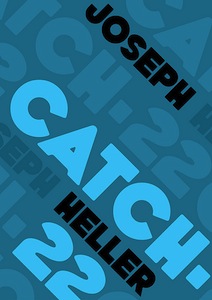
Photo by swiv
A concerted collective effort is currently underway to define non-formal education and non-formal learning.
It is exciting and informative, but at times, it almost seems like a catch-22…
Defining the meaning of words is essential to begin to understand the different contexts and connotations. Definitions, though, must be universal: they must apply to all aspects and meanings of the definiendum…
Definitions in European—let alone global—contexts can, therefore, not be normative (in the philosophical meaning of the word), but can only attempt to be descriptive and explanatory — while avoiding ambiguity through getting lost in details.
If definitions are understood as explanatory statements that capture the meaning, the use, the function and the essence of a term or a concept — how can definitions of non-formal education and learning be produced that hold true for so many heterogeneous contexts?

Photo by buriednexttoyou
One way or the other, it seems necessary and adequate to not cling to any of the established classes of definitions — such as, say, stipulative, or ostensive.
Most of the elements of definitions for non-formal education and non-formal learning variedly include several elements: some are more reportive (i.e. attempting to capture the essence of a concept as in use today), others are more stipulative (i.e. give a term a new or expanding meaning in a European or global context), and most are a combination of these two.
I am quite curious what definitions will be constructed from this collective undertaking of TALE and TOT and NONFORMALITY.
Comments
4 responses to “Defining trouble with definitions”
I think one of the rather important questions we should ask ourselves before we go into the exercise or hacking on words, fine-tuning meanings, sieve thru redundancies, etc. should be: Why?!
What purpose has it to define non-formal education and for whom? Is it for within the ‘szene’, so we can debate with a better vocabulary and sharpen it’s meaning to improve our praxis? Is it for ‘outside’, so we can describe within one minute what we do and what added value it has?
Who wants the definition? I think the answer for that will bring us a step further to actually producing one.
As I said in the discussion about the definition of non-formal education and learning:
We facilitate participatory and learner-centred education with the noble aim to empower people, and our educational approach is therefore necessarily rooted in fair power relations between educators and learners.
But without a clear definition the power leverage will always be on our side, it will always be in favour of the educator. Being learner-centred should also mean being able to clearly explain why and what we do and how – not after or during an educational experience, but before.
Until we have a clear definition, we betray our own principles – we limit the participatory elements of the educational experience we provide.
We do not quite walk the talk, do we?
In a new piece at the encyclopaedia of informal education, Reinhard Zürcher conceptualizes teaching-learning processes by means of a continuum that covers the whole range from informal to formal processes. Instead of the usual descriptive interpretation, he uses an analytical perspective that relates the terms informal and formal teaching and learning to the notion of form. ‘Formalization’, interpreted as generalization of the characteristics of the teaching-learning process, is identified to be the general variable of the continuum. Similarly, informality is interpreted as individualization. The spectrum of possible actors in teaching is extended and the teaching process is intertwined with the learning process. To finish Reinhard Zürcher splits the continuum of the teaching-learning process into its constituting criteria and, by abandoning the term non-formal learning, unifies the process.
WHAT?
Definition of non-formal learning: “Learning which is embedded in planned activities not explicitly designated as learning (in terms of learning objectives, learning time or learning support). Non-formal learning is intentional from the learner’s point of view.”
Source: Cedefop (2008): Terminology of European education and training policy. A selection of 100 key terms. Page 133.